Japan can be a strange and interesting place for first time visitors. Japan has different customs, traditions, and some things that may seem normal in your home country may be the total opposite in the land of the rising sun. Since I'm sure not all of you live in America, Japan's customs listed below might not seem strange to you, but when compared to American society at least, they can be kind of strange.
So what 7 things should you do in Japan but not in the good ol' US of A? Let's find out.
Not Tip for Service

Tipping is a huge part in the day to day lives of the average American. You tip your waiters, cabdrivers, bellboys, and bartenders. Everybody loves getting tips. In Japan, however, tipping is a definite no-no.
If you tip someone in Japan, they may be confused as to why you gave them too much money and they'll insist that you take your change. Some workers may feel guilty about the extra money and not know what to do with it or if taxes need to be paid on it or if they should report it to their superior. Some employees may even see it as demeaning.
When nobody has to worry about tipping, the atmosphere is a lot more relaxed. Your waiter won't be coming over to your table every five minutes to see how everything is. You eat your food, the waiter does their job, you pay for the cost of your food, and the waiter earns their fair wage. Everybody wins. Don't tip in Japan.
Not Hold Doors Open for People
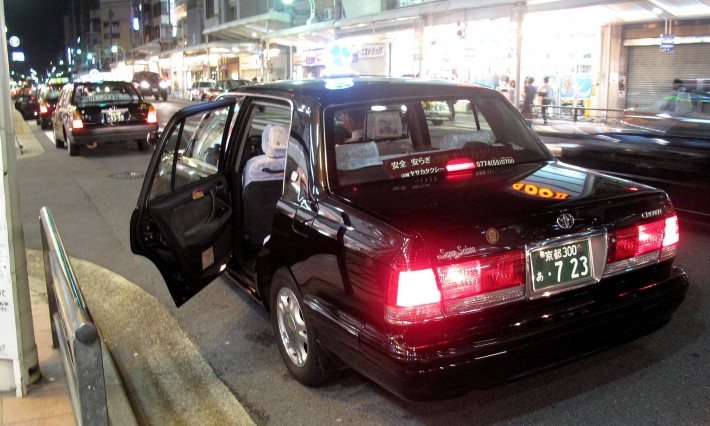
Okay, so this one's not so much something you shouldn't do in Japan, but you definitely shouldn't be surprised when you see others not holding doors open or someone doesn't do it for you.
In Japanese culture and society, it never became commonplace for males to hold open doors for the ladies. It's just not something they're used to doing over there. So if nobody opens any doors for you or if they seem super surprised when you do so for them, now you know why. Heck, even taxi cab doors open on their own – no need to worry about those.
Push and Shove on Subways and Trains
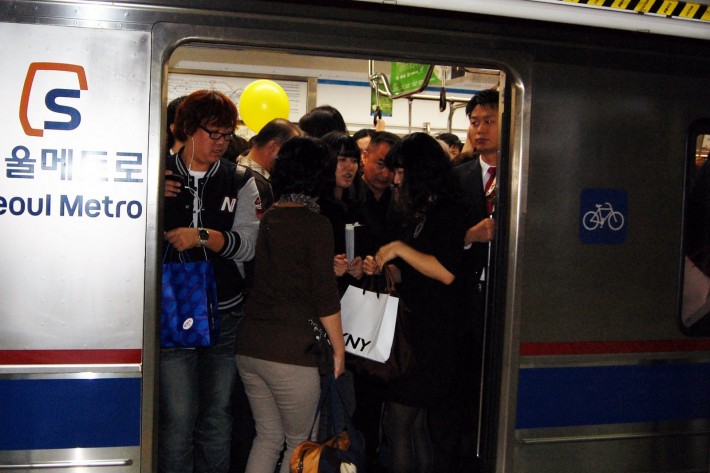
Trains and subways are like, super crowded in Japan especially in the cities around rush hour. To get on and off these crowded trains when they need to, Japanese people must push and shove a bit to get where they're going before the doors close. It's unavoidable. Because it's so commonplace for people to do this, most often the apologies are glossed over as it's just something everyone does.
If you find you need to shove your way out of a situation, here's how to do it as politely and as respectfully as you can. First off, only push when you absolutely need to, and push gently and kindly with your body, not with your hands (if possible). If you're carrying a bag or backpack, carry it in front or behind you so you aren't smacking people with it as you pass through.
Also, you can let people know you're getting off by saying "orimasu" (getting off) so they know why you're pushing past them. Also, since people usually don't apologize while pushing, if you do find you need to really move someone out of the way, you might as well throw a "sumimasen" out there just to be safe. For further reading on what to do (and not do) on trains in Japan, check out our How to be a Baka Gaijin (on Trains) post.
Yell to Get a Waiter's Attention

Most of the time when you need something in a sit-down restaurant in America, you just wait for your server to come over to the table. Usually, it's not too long because they need to make sure they meet your every need as they're working hard to get your tips. Not so in Japan. In America, it's considered pretty rude to snap your fingers or yell out for some service. In Japan, you can just yell out "sumimasen" and someone will be right over to help you out.
I actually had firsthand experience with this at a restaurant in Tokyo. My friends and I needed some water with our meal, and the waitress was just going about her job doing other things. When we realized she wasn't going to come over on her own to check up on us, one of the guys yelled out "sumimasen" and she came right over to help us out. It feels a little strange at first to shout for service in a restaurant like this, but it's just what they do there.
Slurp Your Noodles

In America, you're not supposed to make slurping noises when eating anything. No slurping soups, noodles, or anything. In Japan, however, slurping is just the opposite. It's polite to slurp. When eating ramen, soba, udon, etc, feel free to slurp as loudly as possible. Some say it helps to cool down the temperature of the hot noodles as you eat them, and others say it enhances the flavor. Whatever the reason, don't be afraid to slurp away!
For many foreigners, myself included, slurping foods in this way just seems strange and I could never seem to get used to it so it's just something I don't do, even in Japan. For further reading on what to do and what not to do when eating in Japan, check out our How to be a Baka Gaijin (While Eating) post.
Lift Your Plates and Bowls
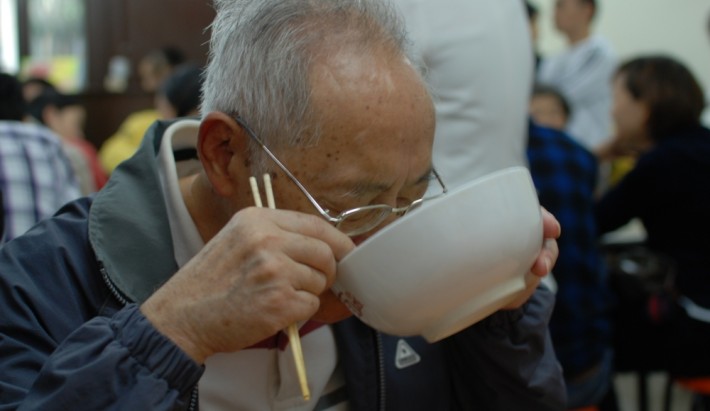
This kind of goes hand in hand with slurping, but in Japan, it's perfectly acceptable to lift bowls up you your mouth as you eat them. This makes it much easier to shovel foods like rice and noodles into your mouth. In America, the bowls and plates are meant to stay on the table, and you're expected to bring the food up to your mouth using your utensils. Japan (and I) think this custom is super dumb, so we lift the bowls up to our faces instead.
Drink Alcohol in Public
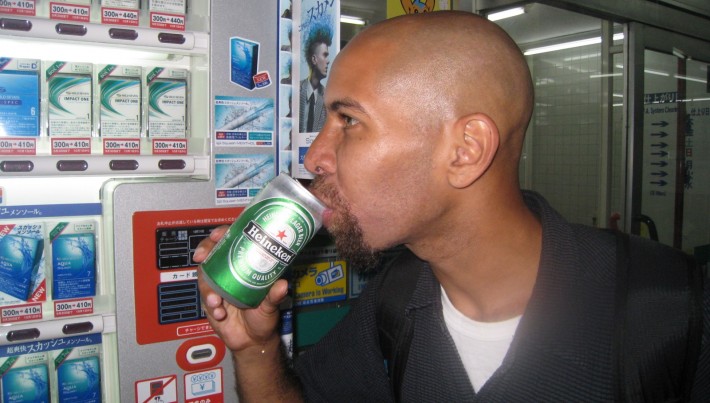
And last, but not least, one of my least favorite things about America, our inability to imbibe alcohol out in public. It's really lame. In Japan (and a lot of other places, I'm sure) there's no open container laws and you can drink some beers on the train back from school or work, out at the park, or by the beach. All with no worry of some police officer coming over to ruin your fun. In Japan you can drink wherever you like and it's just great.
For us poor folks living in America, drinking out in public is a very bad idea and we have to do all our drinking activities in specified establishments or within the confines of our own property. Maybe one day it'll change. Probably not though. For more info on how drinking works in Japan, you can check out our post on How to Drink in Japan.
And More…
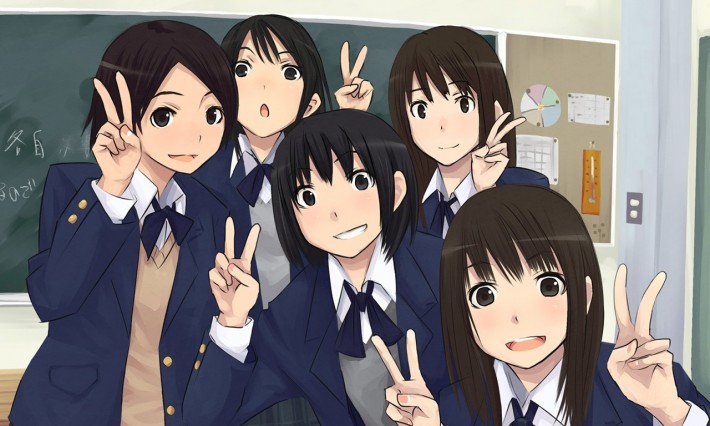
These are just 7 of the things that are discouraged/encouraged in Japan but are the total opposite in America. I'm sure there are other things that conflict with other countries' ways of doing things as well. But for us Americans, the above list is a great introduction into what things aren't as common over in Japan as they are at home.
